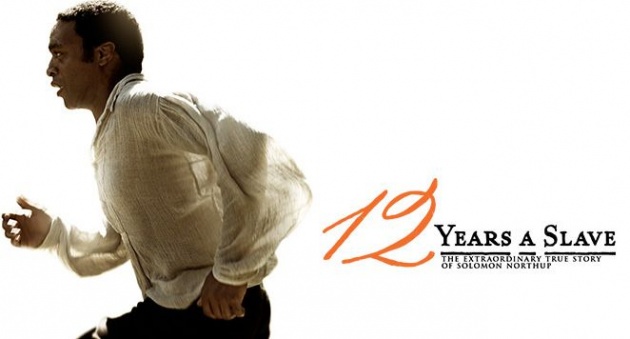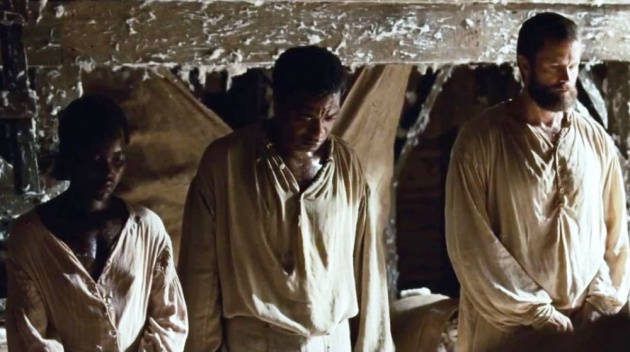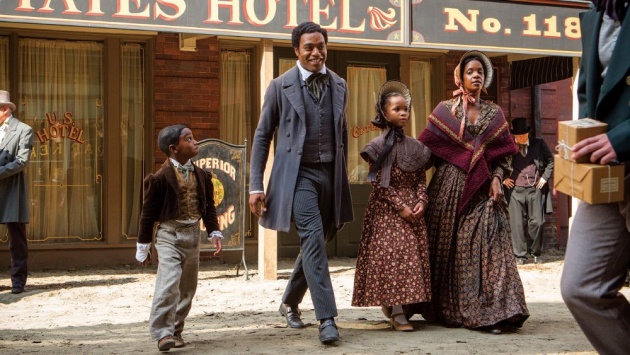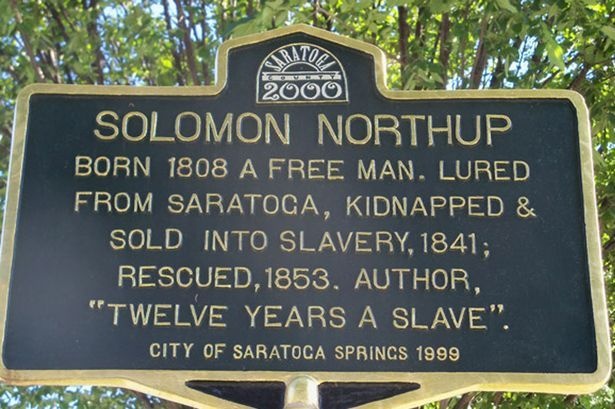
Solomon Northup published 12 Years a Slave – an account of his kidnapping and the ensuing years of captivity when he was forced to live as a slave in the Deep South of the United States – in January 1853. The book’s first-hand account of southern brutality astonished readers in the North, and it became an instant bestseller. Now, 161 years later, the story is making a great impact again. The film adaptation of Northup’s memoir has been acclaimed by critics and historians alike for its unflinching portrayal of American slavery. As a major Hollywood success, both financially and in terms of its many awards, 12 Years a Slave... may signal a new willingness in the US to come to terms with this most depraved aspect of the nation’s history.
SOLD INTO SLAVERY:
The powerful, compelling quality of Northup’s saga arises partly from its veracity. Throughout the book, he refers to the many people, places, documents and events that serve to verify his story. It is also compelling because it unfolds like a nightmare, and one in which everything taken for granted in life – liberty, legal rights, the most basic comforts of food and lodging – has suddenly vanished.
For Northup, the nightmare begins in 1841. A 33-year-old African-American living in the state of New York (which had abolished slavery in 1827 ) he is, and always has been, a free man: educated, modestly prosperous, happily married, and the father of three children. Then, quite by chance, he meets two apparently friendly stage entertainers, later identified as Alexander Merrill and Joseph Russell. They have heard that Northup plays the fiddle and offer him work as a musician, beginning with a stint in Washington DC.
Tempted by their offer of well-paid work, Northup travels with them to the nation’s capital, where slavery is legal, and there he is drugged or knocked-out, waking to find himself in chains and at the mercy of slave trader James Birch, who savagely beats him when he insists that he is a free man.
Forcibly transported by ship to New Orleans, Northup is sold to work on a plantation in the remote backwoods of Louisiana. There, over the course of 12 years, he suffers the hardship and inhumanity endured by millions of slaves before and after him.
Like all slaves in the American South, Northup is the captive of his owner, performing back-breaking work picking cotton or cutting sugar cane from sunrise to sunset, six days a week, whipped by overseers if he wearies. He has only the most meagre rations of food. He lives in a shack that has no floor or furnishings, and he sleeps on a plank of wood. He cannot leave the plantation without permission and has to carry a written pass outside of his owner’s property. Others who attempt to escape are hunted with hounds and, when caught, killed on the spot without trial or hearing.
Over the course of his 12 years in captivity, Northup is bought and sold three times. Slaves are expensive and masters consider them to be a major investment from which they want to reap the highest return. Hence, Northup recognises that he cannot tell his first master, Ford, of his true identity as a free man. Although Northup considers Ford to be kind, he also knows that Ford is too accustomed to slavery to be able to recognise its immorality. It is painfully obvious that Ford will never regard Northup as anything other than his rightful property.
His next two masters, Tibeats and Epps, are viciously cruel. Northup suffers their rages himself and also observes the torments of his fellow slaves. Indeed, for all of Northup’s own agony, the most heartbreaking events in his saga concern his fellow slave Patsey, who is repeatedly raped by Epps and also beaten by his bitterly resentful wife.
Slavery, in Northup’s account, is a toxin, and one that poisons the mind and body of everyone involved in it, including slave owners such as Epps and his wife, who abandon their own humanity in favor of pitiless self-interest. Northup eventually finds his opportunity for freedom when a Canadian labourer, Bass, visits Epps’s plantation. Northup confides in him, and Bass agrees to write and post a letter to Northup’s family in the state of New York. There, a state law offers financial aid for those seeking the return of free citizens who have been pressed into slavery.
Northup’s family, having learned of his whereabouts at last, is thus able to instigate his return to freedom. The law, in this respect, works effectively on his behalf. Epps is outraged by what he regards as the loss of his property, but he is legally obliged to relinquish Northup who returns home to his family.
In other respects, however, the law does not work in Northup’s favour. Birch, the slave trader, is the first to be tried for kidnapping, but Northup is not allowed to testify against a white man, and the case falls apart in court. Later, when Merrill and Russell are identified and located, the case against them is lost in a legal wrangle about using New York state law in a prosecution that concerns crimes committed in Washington DC.
LEGACY:
Northup returns to his family and, with the help of a co-author, writes his memoir. But his is by no means the only slave memoir published in this era. Abolitionists in the North sought to bring these stories to the public, and in some instances they wrote on behalf of former slaves. Northup’s co-author was David Wilson, an experienced writer who invested the memoir with both a sense of balance and gripping first- person narration that drives the story in a straight line from beginning to end.
These virtues, unfortunately, are not as apparent in the film. Although, by and large, one can scarcely quibble with the film’s historical accuracy, its plotting lacks the force and focus of the book.
On screen, there is no narrator, and the story occasionally moves back and forth in time. The resulting effect is a sense of detachment from Northup himself. Although Chiwetel Ejiofor gives a mesmerizing performance, his Northup largely appears bewildered. The film spends long periods focusing on Northup’s degradation rather than on his astonishing ability to survive his long ordeal and to triumph over his captors, which is the theme that reigns through the memoirs.
While 12 Years a Slave can be seen as a breakthrough film in terms of America’s acceptance, there is certainly scope to explore this period in history through the eyes of other individuals. The terrible human cost demands detailing.
12 Years a Slave (True Story behind the Hollywood's Critical Hit)
Posted on at



